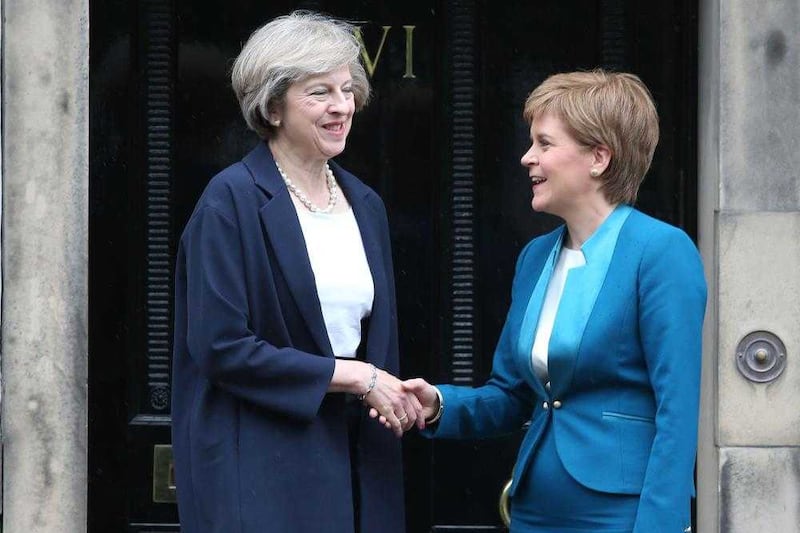WE are encouraged to use experts to keep track of our investments, to make sure we are not putting our money where it might not be safe or might bring a poor return.
For many, not losing hard-earned cash is a bigger priority than making gains; a lot of us are risk adverse when it comes to money, especially our own.
It is therefore astonishing to find out that the Bank of England has just admitted that over half the cash currently in circulation is used for the black or shadow economy or is held overseas.
The Bank estimates that, at the end of July, banknotes worth a whopping £62.6 billion - around £1,000 per person – were in circulation.
As well as the black economy and those overseas holdings, the Bank admits that a further £5 billion is kept in safe deposit boxes, under the mattress or is even “buried in the garden” for that “rainy day” emergency.
“Buried treasure” has always had a lure all of its own; even as youngsters, the stories of hidden pirate treasure had many of us starting to dig up our back gardens. Just recently, the legend of the missing “Nazi Gold Train” in Poland has gained a new lease of life.
In August, a Pole and a German (through lawyers) told local authorities they had found an armoured train with valuables in a disused tunnel and demanded a finder’s fee of 10 per cent. A few weeks later a deathbed confession had the Polish culture minister claiming that ground-penetrating radar had found images of a buried train near Walbrzych in Poland.
This legend started at the end of the Second World War. A German train, containing 300 tonnes of gold, jewels and weapons as well as rare art, is rumoured to have gone missing as the Germans were fleeing Russia’s Red Army. Watch this space!
The Bank of England’s missing “notes” are no legend, but it is a sizeable treasure, even by Hollywood standards – over £30 billion!
The amount of notes (cash) in circulation for everyday use – in wallets and purses, cash machines and shop tills – is around £15-19 billion (21-27 per cent of the supply).
This has led the bank to declare that no more than half the notes in circulation are likely to be held within the domestic economy for legitimate purposes – “the remainder is likely to be held overseas or for use in the shadow economy.”
Just like property, it seems that a large proportion of the UK like to have a small cash reserve on hand – not in a bank or building society account, or not held in premium bonds or other savings instruments. Money we can see and touch.
Historically, that has not always been a good investment as inflation erodes the value of that cash while it sits there, when it could be earning reasonable interest rates in savings products.
But that has not been the case since the banking crisis of 2008.
Returns on savings have been poor. Perhaps more importantly, many normal lending institutions have made it much harder to borrow. Having cash on hand has been useful and sometimes a necessity in the last few years.
We have heard much about the demise of the cheque; only one per cent of consumer payments were made by cheque in 2014. And cashless payments in the UK have now overtaken the use of notes and coins for the first time – 52 per cent v 48 per cent. That cashless percentage is expected to reach 66 per cent by 2024.
Yet cash remains king in many people’s eyes; if it makes them feel more financially secure and relaxed, then why not.
What many might not like, even those who seldom use actual cash, will be the introduction (and feel) of the new “plastic” £5, £10 and £20 notes, brought in by the Bank of England over the next five years. A new 12-sided £1 coin arrives in two years.
The Bank of England will introduce the £5 plastic polymer note next year – Scotland’s Bank of Clydesdale introduced their plastic fiver in March.
These new notes are more expensive to produce than the traditional paper ones, but stay cleaner and last two and half times longer!
Strangely, all this “missing” cash overseas or supporting the shadow economy does not seem to alarm the Bank of England.
“Activity in the shadow economy has not seen significant growth, so the transactional holdings of cash in the shadow economy are unlikely to have been the primary driver of growth in the banknote demand in recent years.”
It’s unlikely that the Treasury is as relaxed about this loss of tax revenue.
The Bank defines the shadow economy as “those economic activities and the income derived from them that circumvent or otherwise avoid government regulation, taxation or observation.”
The shadow economy is made up of two elements - “illegal activities and transactions” and “legitimate activities that are concealed from the authorities”.
Yet most of us who leave £500 in notes in a drawer for an emergency are definitely not involved in either of the above. It will be cash from hard-earned income that has already been taxed!
:: Darren McKeever (dmckeever@ wwfp.net) is Northern Ireland adviser of Worldwide Financial Planning, which is authorised and regulated by the Financial Services Authority. For a free, no obligation initial chat about your individual finances, call 028 68632692, e-mail info@ wwfp.net or click on www. wwfp.net. Follow us on Twitter: @WorldwideFP.







